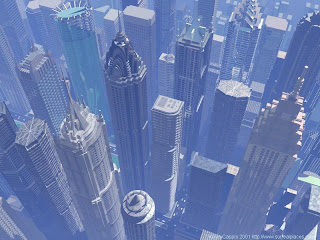
Three Indian cities, the national capital New Delhi, financial capital Mumbai and a south Indian metropolis Chennai are among the 10 worst cities in the world to be working in, said a recent survey conducted by an international consultant institution.
Sample surveys are considered as an important aspect of city planning and they are of many kinds like origin- destination survey, soil survey, surveys to check pollution level, standard of living and so on.
But for Indian cities we can have certain special and uncommon topics for surveying for example No. of persons irrigating trees by urinating along road side per day or No. of persons creating modern art by spitting on walls of govt. buildings per day or No. of persons fulfilling their water requirement through punctured water supply pipelines or Which city is accommodating maximum no. of innovative and creative beggars? (Based on their innovative style of begging) or which city is having maximum no. of multifunctional footpaths? (Multifunction includes serving as a bed to sleep, sulabh sauchalaya and platform for pedestrians off course) or which road of the city is having maximum road - vehicle interaction (because of traffic jams and standing hours on traffic lights) or which city shows maximum diversity on roads itself (diversity means motorized vehicles, non motorized vehicles, heavy vehicles, light vehicles, pedestrians, dogs, cows, donkeys, goats, pigs etc.) and there are so many or’s.
Above sentences gives a true picture of real India or we can say incredible India. It is easy to comment that a sustainable urban planning is required to gain a healthy Indian city but where are the planners??? Actually we Indians are excellent in multitasking so planners are busy in developing hi-tech cities and big residential colonies for HIG and our over talented politicians are looking up the task of city planning along with their other infinite tasks of nation building. They contributed their best in making Bangalore: a garbage city from a garden city, Mumbai: Flood capital from financial capital, and will surely keep contributing in giving some more such names to Indian cities. Other than this we have certain achievements also, we have Asia’s largest slum, our Yamuna river holds 10th rank in the worlds dirtiest river, two of the Indian cities holds 2nd and 3rd rank in the worlds most polluted cities and three of the Indian cities are among the 10 worst cities of the world.
Though the seven aspects of urban planning i.e. Social, Physical, economical, cultural, environmental, infrastructural and ecological are interlinked but dealing with the social aspect of planning is next to impossible because it includes the most complicated creation i.e.
 human being. On the other hand this complicated creation can only solve the problems related to urban as well as rural India.
human being. On the other hand this complicated creation can only solve the problems related to urban as well as rural India.In case of planning a city, solutions themselves create problems. For example Metros can be a solution for the problem of large commuting distance but at the same time it creates a problem of hollowing the earth and destroying the ecological barriers which in turn may result in other severe problems like earthquakes, low rainfall, global warming etc and than their solution will result in certain other problems.
Indian land and its people are used to this never ending cycle of problems and solution which is also a problem. They consider problem as their routine. King Khan has said very well “don’t be santusht, thoda aur wish karo”. Actually satisfaction is a hurdle in the way of perfection especially in case of a city.
It’s easy to say “wake up and do something” but in reality nobody follows “think first for nation than for state than for city than for colony and than for your own house” actually the concern cycle is just opposite. If an individual is getting cheap land in the outskirt of a city than while constructing his house he will never think of the burden on municipality for increasing water supply lines, sewer lines, electricity lines, telephone lines, waste disposal, roads etc. he will never think that his single house may result in the expansion of a city and can destroy its compact nature.
Actually Indian scenario is similar to the working of Indian police who arrives only after crime has already happened similarly in case of cities if problem is known nobody will look for a solution but if problem exist and reaches to its maximum than we will go for an already discovered solution by any other country. We never experiment and never initiate because we are afraid of loosing our factors of production.
"We are responsible for what we are, and whatever we wish ourselves to be, we have the power to make ourselves. If what we are now has been the result of our own past actions, it certainly follows that whatever we wish to be in future can be produced by our present actions; so we have to know how to act. “ -- Swami Vivekananda
Acknowledgement : Inputs taken from students of IIT Roorkee MURP Course
No comments:
Post a Comment